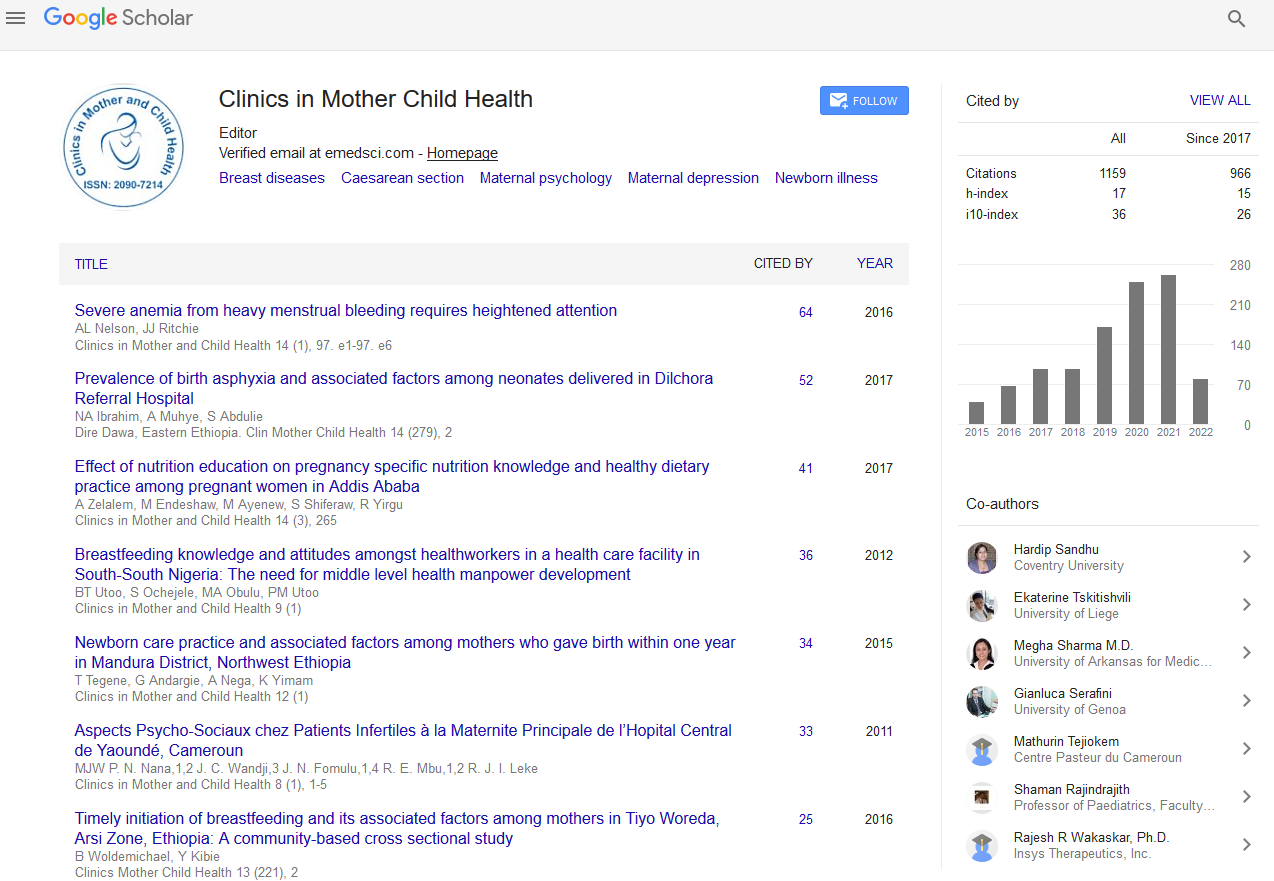Indexed In
- Genamics JournalSeek
- RefSeek
- Hamdard University
- EBSCO A-Z
- Publons
- Geneva Foundation for Medical Education and Research
- Euro Pub
- Google Scholar
Useful Links
Share This Page
Journal Flyer

Open Access Journals
- Agri and Aquaculture
- Biochemistry
- Bioinformatics & Systems Biology
- Business & Management
- Chemistry
- Clinical Sciences
- Engineering
- Food & Nutrition
- General Science
- Genetics & Molecular Biology
- Immunology & Microbiology
- Medical Sciences
- Neuroscience & Psychology
- Nursing & Health Care
- Pharmaceutical Sciences
Abstract
Assessment of Birth Preparedness and Complication Readiness among Pregnant Mothers Attending Ante Natal Care Service in Mizan-Tepi University Teaching Hospital, South West Ethiopia
Bayu Begashaw, Yared Tesfaye, Eminet Zelalem, Ujulu Ubong and Abera Kumalo
Background: Every pregnancy is risk of having life-threatening obstetric complications. A birth preparedness package promotes active preparation and assists in decision-making for healthcare seeking in case of such complication. Although its importance is fact, it is low in Ethiopia.
Objective: To assess how pregnant women in Mizan Tepi University Teaching Hospital prepare for delivery and in the occurrence of complication practice and its associated factors, southwest Ethiopia.
Method: A facility based cross sectional study was conducted in antenatal clinic of Mizan Tepi University Teaching Hospital on a sample of 392 pregnant women in 2016. Data was collected using pre-tested structured questionnaire which was adapted from previous similar studies. Data was collected, checked and reviewed on daily basis by supervisors. The collected data were analyzed using SPSS version 21 software. Bivariate analyses was done to identify factors associated with birth preparedness and complication readiness and those found significant (p-value ≤ 0.25) were entered in the multivariate logistic regression analysis. The results were presented in frequency table, odds ratio and 95% confidence interval.
Results: Of the sample mothers, 392 making response rates of 98.7% were successfully interviewed. Among these, 51% of them were identified place for their recent birth whiles almost half of them 49% were not identified place for their recent birth. Majority of women 77.6% were heard about birth preparedness and complication Readiness. High proportions were got information from health professionals 75.8%. Among the factors considered for birth preparedness and Complication Readiness were lower monthly income, maternal and husband education, maternal occupation showed statistically significant association.
Conclusion: The magnitude of birth preparedness and complication readiness was moderate in the study area. Preparedness in health system, ensuring competence, and motivations of workers are needed for promoting BPCR among the study population.


